- Home
- Captain W E Johns
40 Biggles Works It Out Page 2
40 Biggles Works It Out Read online
Page 2
"Very little, unless the nations threatened get together and show a more co-operative spirit than they do at present."
"What about the International Police Commission?" reminded Ginger.
Biggles shrugged. "It's a capital idea. In theory it looks fine. But how far does it go in practice? About as far as the rest of the international organizations. Countries are still working on their own, just as we are. That's no use. To make the thing efficient every country should have its air police. All should be constantly in touch to exchange views and information. Look at us. I suppose we're part of this commission, but how often do we see any foreign members?"
"Have you ever suggested a general meeting?" asked Ginger.
"Several times. Nothing came of it."
"Well, what are you going to do?"
"For the moment, nothing. It's no use tearing about the atmosphere without knowing what we're looking for."
Ginger moved nearer to the window as from the murk came the sound of an aircraft feeling its way in. "I hope he's enjoying himself," he murmured cynically. There was a short pause before he went on. "He's down all right. Looks like a Frenchman—a military Morane with civil markings.
Nobody paid much attention. But when, presently, Ginger remarked, "The pilot's coming this way," Biggles looked interested.
"Who is it?" he asked.
"Search me. I've never seen him before. Yes, he's coming here. The Flight Sergeant has pointed out the office."
A minute later there came a knock on the door, which was opened to admit a dapper young man in well-worn flying-kit. He glanced from one to the other, smiling. "Good morning, sirs," he said cheerfully.
"Good morning to you," returned Biggles. "What can I do for you? Take a seat. Have a cigarette?"
II
A FRENCHMAN SETS A POSER
THE stranger accepted the chair Ginger pulled forward, and a cigarette. "Your weather I do not like," he said, as he clicked his lighter.
"We don't like it ourselves," replied Biggles. "But as it's dished out to us we have to take it as it comes. Forgive me if I appear abrupt, but is that what you came to talk about?"
"No—no," was the quick reply. "But tell me this. Do I speak with Capitaine Bigglesworth?"
"You do—if you speak to me," returned Biggles. "Good. Now we talk at last some business," said the visitor, with warm satisfaction in his voice.
"What business?" asked Biggles, looking a trifle surprised.
"Police business. Ah! Forgive me; I am a fool; I forget; you do not know me. I am Marcel Brissac, the French Air Police."
"Just you?" Biggles smiled.
"Oui, monsieur. Just me. La, la! So you are the famous Beegles?"
Bertie adjusted his eyeglass. "Here, just a minute, old top. In this country beagles are dogs, you know."
The French pilot laughed. "Bon. So he is an old dog. He shows me some tricks, perhaps?"
Biggles's smile broadened. "Perhaps we can show each other some. By the way, a long time ago, in France, I knew a pilote de chasse of your name. His name was Charles Brissac, of the Escadrille Cigognes. Was he a relation of yours?"
"A relation? Tiens! He is -my father, and to you he sends his felicitations, monsieur,"
answered Marcel.
"Is he still flying?"
"No. A little while ago, yes. But now he is Administrateur of the Direction de la Navigation Aerienne. I am a Capitaine of the Armée de l' Air, but I am selected for the duty special of catching flying voleurs—how do you call them, thiefs?"
"Have you caught any?"
Marcel shrugged. "Not one. This makes me sad, and it is my father who says to me go to England and make correspondence with Beeglesworth. So here I come."
Biggles glanced round the room. "This is odd, after what I was saying just now. It looks as if there's going to be a little real co-operation at last."
First impressions are not necessarily infallible; but they are important, and usually to be trusted. Ginger liked Marcel Brissac on sight. He was so obviously alive, and so glad to be alive. His vitality revealed itself in every eloquent gesture that he made—and he made many. Enthusiasm and good humour sparkled in his dark eyes when he spoke; and there were moments when words fairly rattled off his lips in his anxiety to give expression to his thoughts. Indeed, there were times when his exuberance, which he made no attempt to conceal, made Ginger laugh, because it was so obviously genuine. Every passing emotion was reflected instantly on his face.
He was, Ginger judged, about twenty-five, slim, with fine, clean-cut features and a miniature black moustache decorating his upper lip. His general appearance was neat, without being foppish. Above all he was natural, plainly—and sensibly—seeing no reason to be otherwise. In a word, he was just as typically French as Biggles was British.
Later it was learned that during the war he had served with the Free French Air Force, which accounted for his knowledge of English, which was sound, even if his choice of words was sometimes whimsical.
Biggles was speaking. "Tell me, Marcel; has anything happened in your department? I mean, was there any special incident on which you wanted my opinion?"
"Does something happen? !" cried Marcel. "Something happens all -the time. These thiefs .. . how do you call them?"
"Crooks."
"Ah, yes. These crooks who fly are busy. It is to stop them I am ordered."
Biggles's eyes twinkled. "How are you going to do that?"
Marcel threw up his hands helplessly. "You ask me? I come here to ask you."
"If I knew where to start I wouldn't be sitting here," Biggles pointed out.
"Perhaps together we can find them," suggested Marcel hopefully.
"We can try," conceded Biggles. "Have you anything to work on? We have nothing here."
"Wait! I show you something," declared Marcel earnestly. He took a note-book from his breast pocket. Selecting a sheet of paper, he unfolded it and put it on the desk. "Perhaps this means something, perhaps not. I do not know. Have you seen this aeroplane?" He tapped the paper with an energetic forefinger.
The others crowded round to look. On the paper was a rough sketch of an aircraft—to be
precise a Douglas D.C.3, although certain slight modifications appeared to have been made to it.
"What is this supposed to be?" asked Biggles, looking up.
"This is what I ask you, monsieur," returned Marcel.
Biggles looked again at the sketch. "I don't see anything remarkable about it," he went on. "This aircraft is, or was, a Douglas D.C.3, although it might have been converted for some special job. It seems to have been fitted with a tricycle under-carriage. That, to some extent, makes it unique. The D.C.4 has a tricycle undercarriage, but that's a four-engined job. This is a twin. What about the machine, anyway?"*
"This is a picture given to me by my friend Paul Legendre, of the service Air France,"
explained Marcel. "There is something strange about it. I will tell you. My friend Paul works on the African service, between Gao, in the French Sudan, and Algiers. The ground is very bad, always desert the most terrible all the way. In the middle are the Ahaggar Mountains, where no man goes, except sometimes the most savage Arabs. One day not many weeks ago Paul is flying up from Gao. He
* The twin-engined Douglas D.C.3 is one of the most universally used transports. A low-wing cantilever monoplane, it takes many forms and has many names. In the American army one type was known as the Skytrain. Another type was the Skytrooper. In the U.S.
Navy it was the R.40-I. As supplied to the R.A.F. it was the Dakota I and Dakota 2. The engines were either "Wasps" or "Cyclones" driving three-bladed airscrews. The Skytrain would carry twenty-eight troops complete with equipment. meets the thing he always dreads, the storm of sand. Up he takes himself to get over it. But no! It is not possible.
But on high it is not so bad as low down, you understand? Suddenly there passes close by him an aeroplane. He stares. Is this possible? he asks himself. No, no. Is it his shadow? N
o. There is no sun to make shadows. Besides it is on a course for the middle of the Sahara. It is not like his own, although it carries the letter F of France. He makes a picture of it on his brain. Then it goes, and he sees it no more. This is the story he tells me in Paris, in the Aero Club de France. Because he is an artist he makes of this aeroplane a picture, which is what I show you now." Marcel tapped the sketch.
"Is Paul still on the same run?" asked Biggles. "Yes."
"Has he seen the plane again?"
"No. Always he looks, but there is nothing but sand, and in the distance, the Mountains of the Ahaggar. But wait! When he tells this story in Paris there are in the club many pilots. One is named Georges Pinsard. He also is of Air France, of the service Transatlantique, to New York by way of Azores. He looks at this picture. Very strange, he says. I also have seen this machine, over the sea four hours out from Paris. Name of a name! cried Georges. I have a shock when it springs out of the clouds and passes so close that if I do not make a sudden turn we must meet face to face. But Paul, says Georges, you make a mistake. This machine is not of France. When I see it, it carries the letters CS
of Portugal. No, no, says Paul. I will swear it carries the letter F. But, says Georges, how can it carry the registration letter F when there is no machine of that type in the French service? That is true. I know it." Marcel looked at Biggles and shrugged his shoulders. "
You see? Here is a machine that nO one knows and belongs to two countries. Is there something—how do you say?—fishy, about that?"
"Very fishy," murmured Biggles slowly, staring at the sketch. "I don't know that particular machine, and it's my business to know most things with wings. When Georges saw this machine, and apparently nearly collided with it, he was, you say, four hours out from Paris?" "Yes."
"Then the machine was on its way to Europe?"
"To Europe or North Africa. Its course was a little south of east."
Biggles took a cigarette and tapped it thoughtfully. "Very interesting," he said. "Very interesting indeed." Looking up at Marcel, he went on, "Did either of these pilots, Paul or Georges, mention the matter to the control officer when they got in?"
"But of course," was the emphatic answer. "They must put it in their flight reports. I have examined these with my father. We make much of the affair because this is how accidents are made."
"What had the control officer to say of this?"
"What can he say when he knows nothing? I ask if Air France has such a machine, a new one perhaps. He says no. I ask the Portuguese Attaché in Paris if he has such a machine.
He says Portugal has no machine like it."
"Big machines are usually in touch with the airfield of their arrival or departure, but this one seems to have been a lone wolf, in touch with nobody."
"It sent no signals," declared Marcel. "I have examined the control records of the days when it was seen."
"That isn't to say that the machine didn't receive signals," put in Algy. "It could have picked up weather reports while keeping wireless silence itself."
"It could have been in touch with its base on a special wavelength, if it comes to that,"
asserted Biggles. "What about when it was over Central Africa, heading, apparently, for the middle of the Sahara—in a sandstorm with visibility, at ground level, nil? It rather looks as if that pilot knew where he was going. We must suppose he was in touch with somebody, or he'd have been heading out of the murk, not farther into it. It all boils down to this. Here is an aircraft that carries French oi Portuguese markings when it suits it, but is known to neither country.
No machine on legitimate business would behave like that. It was, therefore, on business of its own; and, it seems, changes its registration marking to suit itself. If it has worn both French and Portuguese markings it has probably worn others. It would have to carry markings of some sort in case it was seen. A complete absence of markings, military or civil, would be noticed by another pilot. Observe that the markings, when they were seen, were appropriate to the position. When the machine was over French territory it carried F. Between the Azores and Europe, as the Azores are Portuguese, it carried CS. I am well aware that there have for some time been one or two small machines dodging about, particularly at night, on questionable business; but this is something bigger. Here we have a big machine that obviously has a range of thousands of miles. Well, I can't say I'm particularly surprised."
"We must catch this machine and find out its business," declared Marcel.
"I'm with you there, but how do you suggest we start?" asked Biggles. "This machine may be on the ground for weeks at a time. To start patrolling the sky aimlessly in the hope of seeing it would be like looking for a flea in a fur coat. Never mind, Marcel. You have at least produced a clue, which is something we hadn't got when you drifted in.
More important still, I'm glad to know that France is willing to co-operate with us in a practical way. Between us we should be able to catch up with this wily aviator who seems to be playing the old pirate trick of changing his colours when it suits him."
"We certainly ought to be able to trace a machine of that size," put in Algy. "The company that sold it, new or second-hand, is bound to have a record of the sale."
"One would think so," agreed Biggles. "But don't overlook the fact that more than one air-operating company has gone out of business without accounting for its aircraft. Apart from that, more aircraft have disappeared without trace than is generally realized. The Avro
Tudor, named the Star Tiger, disappeared in January 1949, and a sister ship, the Star Aerial, shortly afterwards. You may remember the fuss that resulted in an inquiry? I can think off-hand of nine big machines, including at least one D.C.3, that went out and never came back. All we know about them is they disappeared without trace. In one case, I recall, an American committee of experts reckoned that someone had tinkered with the fire-extinguishing apparatus, releasing carbon dioxide which gassed the crew and the passengers. But that was only surmise."
"What you're really saying is, one or more of these machines may not in fact have crashed at all?" put in Ginger.
"Since Marcel produced his picture of a D.C.3, which seems to have queer habits, it has occurred to me that at least one of these missing machines might still be airworthy,"
admitted Biggles. "It's unlikely, but possible."
"In other words," suggested Ginger, "someone may have pinched a machine?"
"If so, it wouldn't be the first machine to be taken up by an unauthorised person—off its own airfield at that. When you think of it, what could be easier to steal than an aircraft, even a big passenger job, by someone who could fly?"
"Here, wait a minute old boy," objected Bertie. "I don't quite get that."
"All right. Let us go back to the argument that we four are crooks. A fellow comes along and says, I'll give you ten thousand pounds for a Douglas, delivered to my private airfield in Central Africa. We decide to accept. All right. With guns in our pockets we book as ordinary passengers. No one is to know we can fly. When we're in the air Ginger knocks the radio operator on the head and takes over signals. I do the same with the pilot. Algy and Bertie deal with the rest of the crew. What could the passengers do about it?
Nothing. They'd be too scared to move. Later they could be disposed of in any way that suited us. Ginger sends out an SOS that the machine is on fire and we're coming down in the Bay of Biscay or somewhere. Search parties rush to the spot. What do they find?
Nothing. Why? Because the plane, in perfectly good order, is on the ground a thousand miles away, having been delivered to the man who wanted it. We share out the ten thousand and come home in our own time, or, maybe, go on working for our crooked employer."
Marcel's eyes were nearly popping out of his head. "Mon Dieu!" he cried. "It is a good thing for aviation that you are the police, and not crooks."
"What we could do other people could do," asserted Biggles, smiling. "My point is, it could happen."
"How ab
out getting down to facts?" put in Algy. "This mystery plane that Marcel has provided—what are you going to do about it?"
Biggles lit another cigarette. "As far as I can see there's only one thing we can do at the moment, and that is check up on all D.C.3s that have vanished without trace. We might at the same time ascertain the names of the people on board, both crew and passengers.
That would tell us whether the aircraft was simply on test or working on a scheduled flight. I'm certainly not going to fly up and down the Sahara or round and round the Atlantic on the off-chance of meeting Marcel's mystery kite. The Sahara isn't our territory, anyway." Biggles thought for a moment, then looked at his French colleague. "
I'm going to speak to my chief about this," he said. "Meanwhile, Marcel, you might make some discreet inquiries about that area of the Sahara where the Douglas was seen. France has both civil and service machines flying in that part of the world. I suggest you make a round of the aerodromes and find out if any of your pilots have noticed a place where a big machine could lie low without being fried to a cinder by the sun."
Marcel looked dubious. "The heat," he averred, "is formidable."
"I know that," answered Biggles. "But after all, this mystery kite that flies false colours has to land somewhere. It may have been making for its hide-out when it was seen over the Sahara. It might have been making for the same place when it was seen over the Atlantic, if it comes to that. Its course would be about right. One thing we can be sure of," he concluded. "The pilot wasn't digging his way through that dust storm towards the Ahaggar Mountains for the fun of it."
"That is true," agreed Marcel seriously. "I will go to Africa. When I have, something to tell you I come back."
Biggles got up. "Okay. If that's settled let's go over to the canteen and see what they can produce in the way of lunch."
III
MODERN DAYS, MODERN WAYS
THE Air Police Wellington roared a challenge to Nature in the rough as its engines kicked the air behind them five thousand feet above a patchwork quilt of light and shade, of rock and sand, of withered salt-bush and purple scrub, that comprises most of the landscape where the Great Sandy Desert of Australia rubs shoulders with the Northern Territory. From time to time, between sun-cracked hills, some of which were craters of long-dead volcanoes, rivers spilled themselves on wide, stony flats; but they were rivers of sand. The water that once had filled their beds had long ago departed, no man knew when, or where, or how. Above, from a vacant sky, a relentless sun tormented a vacant land.

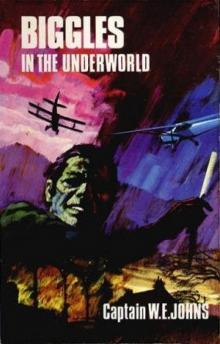 Biggles in the Underworld
Biggles in the Underworld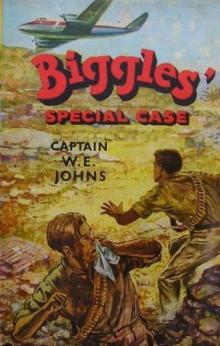 Biggles' Special Case
Biggles' Special Case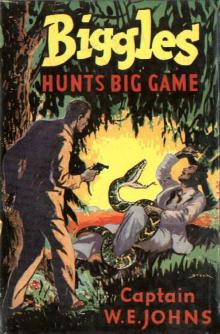 34 Biggles Hunts Big Game
34 Biggles Hunts Big Game 03 Now To The Stars
03 Now To The Stars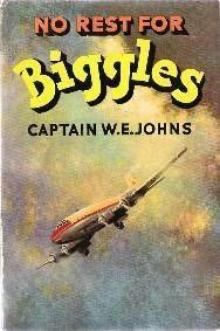 55 No Rest For Biggles
55 No Rest For Biggles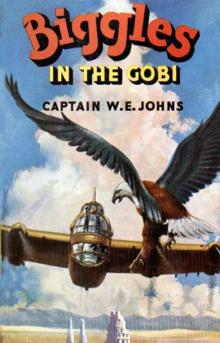 46 Biggles in the Gobi
46 Biggles in the Gobi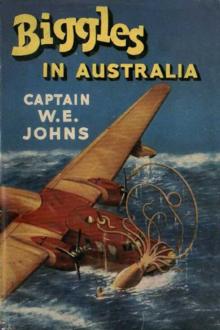 52 Biggles In Australia
52 Biggles In Australia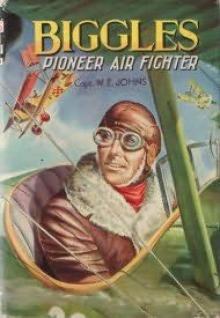 51 Biggles Pioneer Air Fighter
51 Biggles Pioneer Air Fighter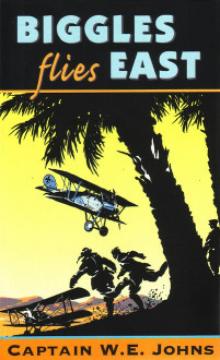 05 Biggles Flies East
05 Biggles Flies East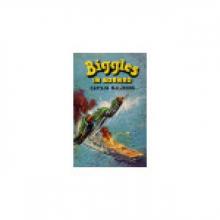 28 Biggles In Borneo
28 Biggles In Borneo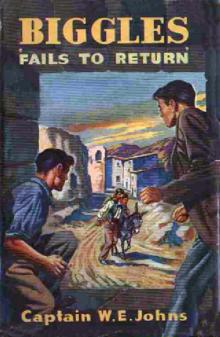 29 Biggles Fails to Return
29 Biggles Fails to Return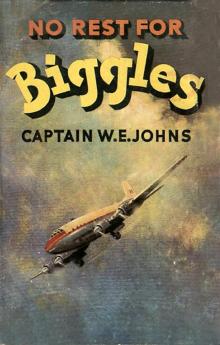 55 No Rest For Biggles (v2)
55 No Rest For Biggles (v2)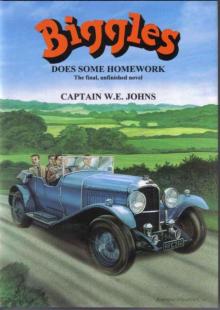 Biggles Does Some Homework
Biggles Does Some Homework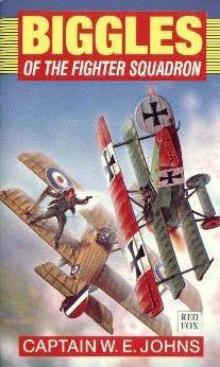 Biggles of the Camel Squadron
Biggles of the Camel Squadron 35 Biggles Takes A Holiday
35 Biggles Takes A Holiday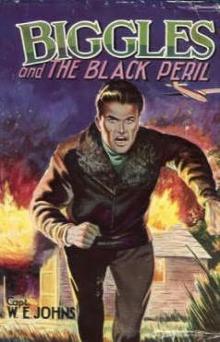 Biggles And The Black Peril (06)
Biggles And The Black Peril (06)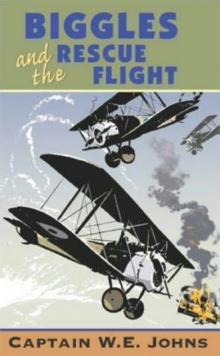 17 Biggles And The Rescue Flight
17 Biggles And The Rescue Flight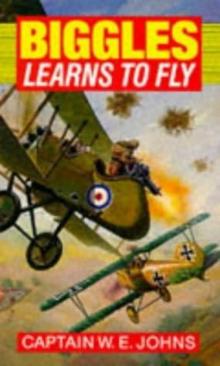 Biggles Learns To Fly
Biggles Learns To Fly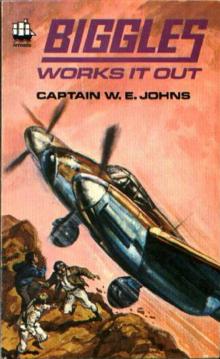 40 Biggles Works It Out
40 Biggles Works It Out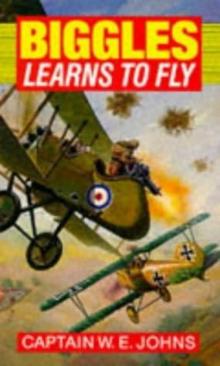 05 Biggles Learns To Fly
05 Biggles Learns To Fly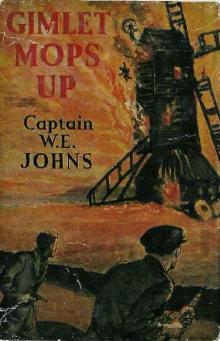 04 Gimlet Mops Up
04 Gimlet Mops Up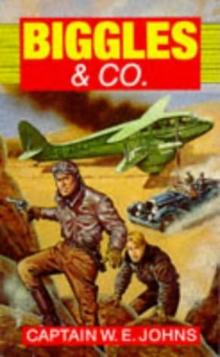 10 Biggles and Co
10 Biggles and Co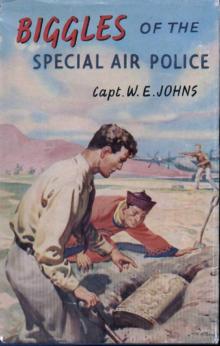 47 Biggles Of The Special Air Police
47 Biggles Of The Special Air Police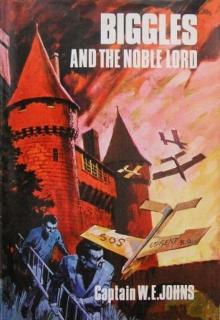 Biggles and the Noble Lord
Biggles and the Noble Lord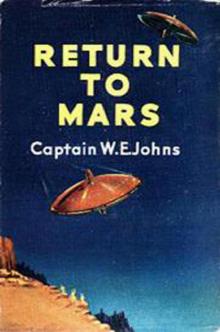 T2 Return To Mars
T2 Return To Mars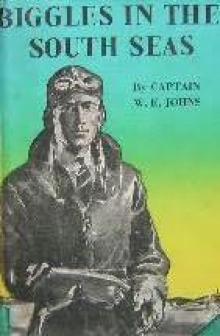 21 Biggles In the South Seas
21 Biggles In the South Seas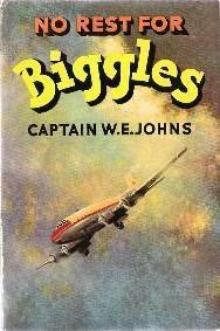 No Rest For Biggles
No Rest For Biggles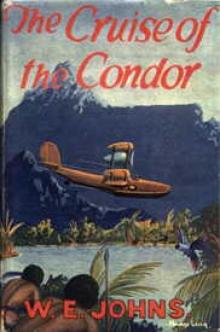 Biggles In The Cruise Of The Condor (02)
Biggles In The Cruise Of The Condor (02)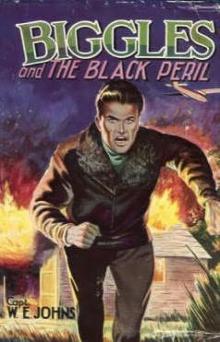 06 Biggles And The Black Peril
06 Biggles And The Black Peril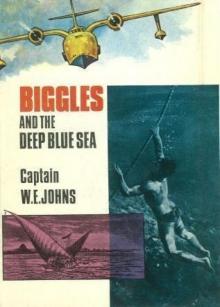 Biggles and the Deep Blue Sea
Biggles and the Deep Blue Sea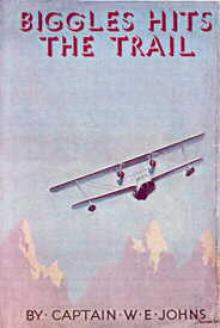 06 Biggles Hits The Trail
06 Biggles Hits The Trail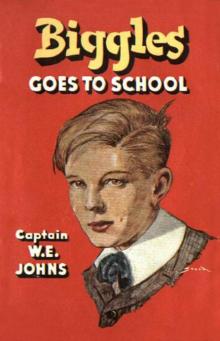 39 Biggles Goes To School
39 Biggles Goes To School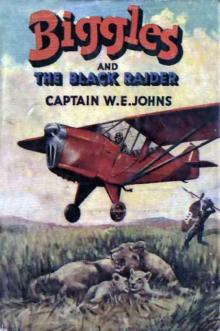 44 Biggles and the Black Raider
44 Biggles and the Black Raider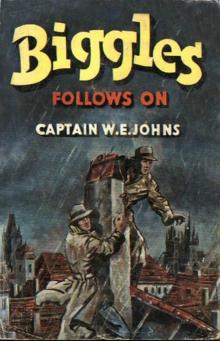 42 Biggles Follows On
42 Biggles Follows On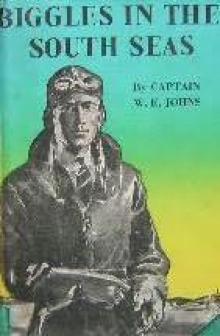 Biggles In the South Seas
Biggles In the South Seas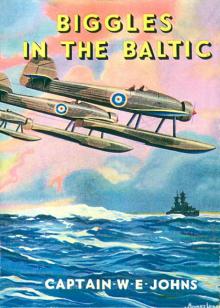 21 Biggles In The Baltic v3
21 Biggles In The Baltic v3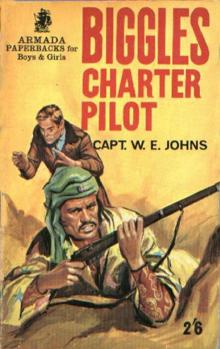 27 Biggles - Charter Pilot
27 Biggles - Charter Pilot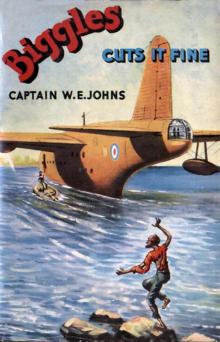 49 Biggles Cuts It Fine
49 Biggles Cuts It Fine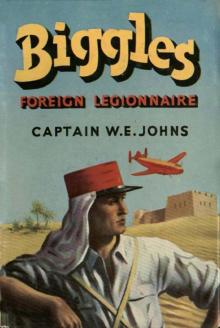 51 Biggles Foreign Legionaire
51 Biggles Foreign Legionaire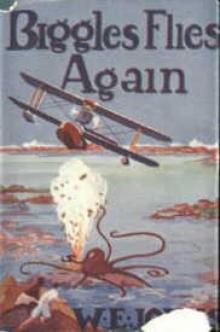 04 Biggles Flies Again
04 Biggles Flies Again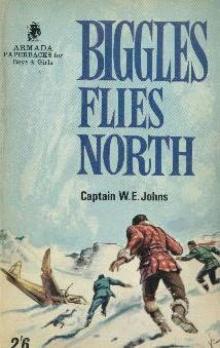 16 Biggles Flies North
16 Biggles Flies North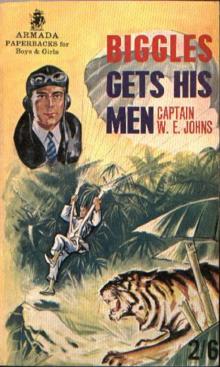 37 Biggles Gets His Men
37 Biggles Gets His Men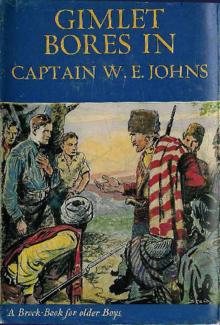 07 Gimlet Bores In
07 Gimlet Bores In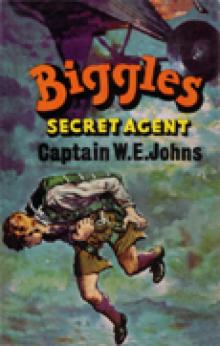 19 Biggles Secret Agent
19 Biggles Secret Agent 32 Biggles In The Orient
32 Biggles In The Orient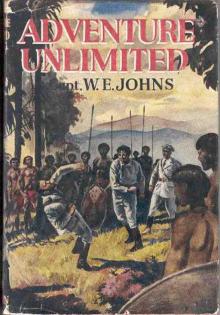 Adventure Unlimited
Adventure Unlimited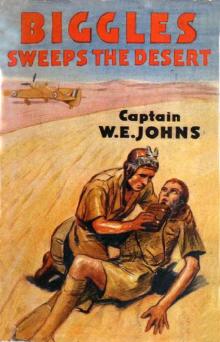 26 Biggles Sweeps The Desert
26 Biggles Sweeps The Desert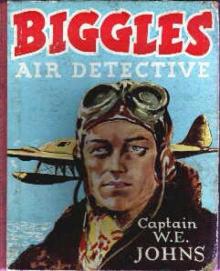 Biggles Air Detective (43)
Biggles Air Detective (43) 36 Biggles Breaks The Silence
36 Biggles Breaks The Silence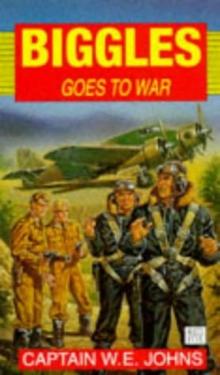 14 Biggles Goes To War
14 Biggles Goes To War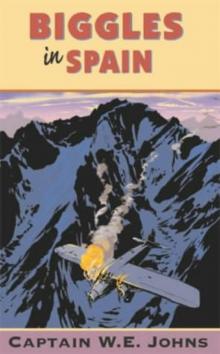 18 Biggles In Spain
18 Biggles In Spain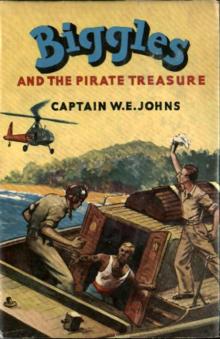 50 Biggles and the Pirate Treasure
50 Biggles and the Pirate Treasure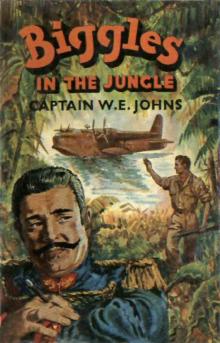 25 Biggles In The Jungle
25 Biggles In The Jungle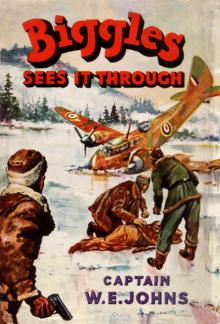 23 Biggles Sees It Through
23 Biggles Sees It Through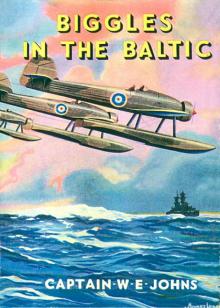 21 Biggles In The Baltic
21 Biggles In The Baltic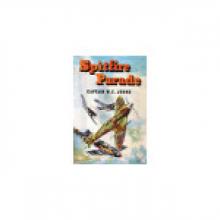 24 Spitfire Parade
24 Spitfire Parade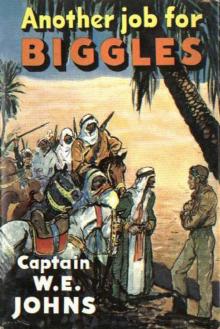 38 Another Job For Biggles
38 Another Job For Biggles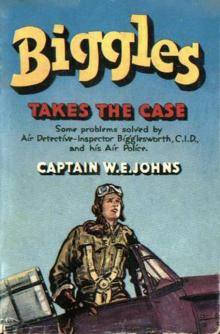 41 Biggles Takes The Case
41 Biggles Takes The Case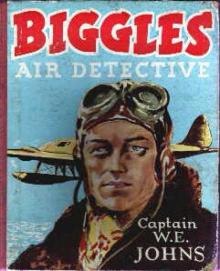 43 Biggles Air Detective
43 Biggles Air Detective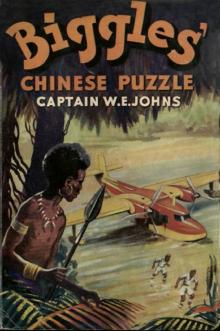 53 Biggles Chinese Puzzle
53 Biggles Chinese Puzzle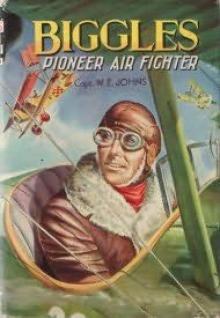 Biggles Pioneer Air Fighter (51)
Biggles Pioneer Air Fighter (51)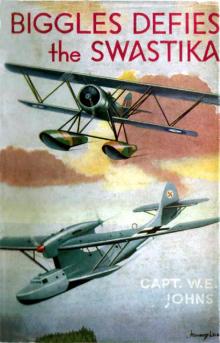 22 Biggles Defies The Swastika
22 Biggles Defies The Swastika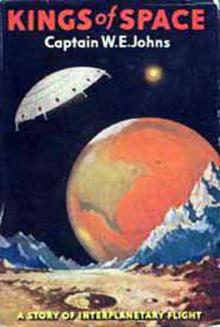 01 Kings Of Space
01 Kings Of Space